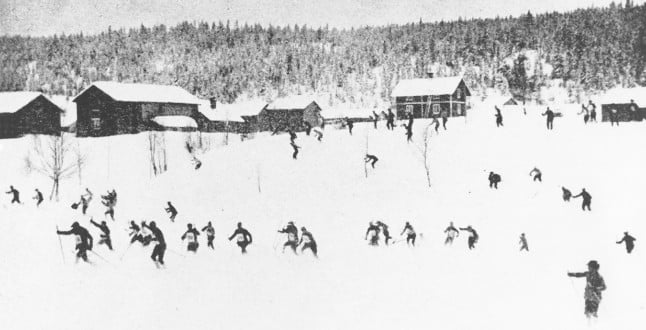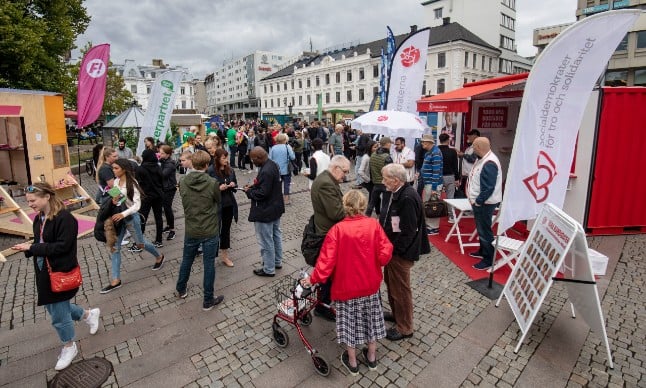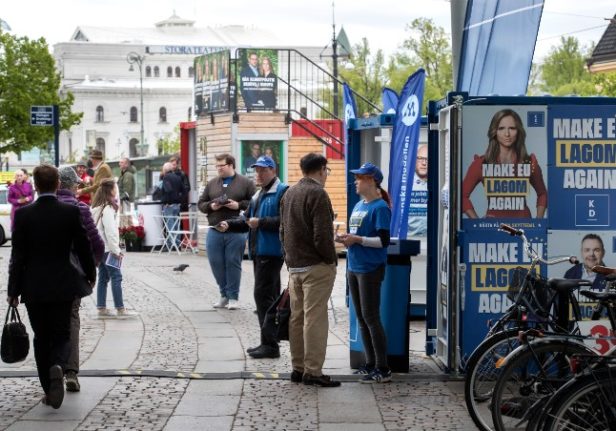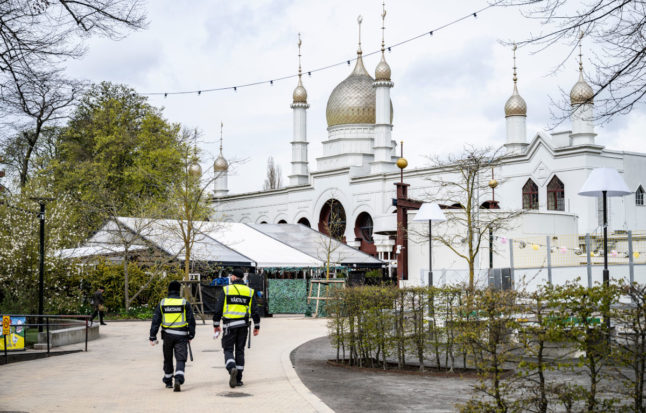January 13th: Swedish parliament reopens with leaders’ debate
The election year kicks off on the Thursday of the second week of the year, with the opening of parliament and a leaders’ debate. Expect the right-wing opposition Moderate, Sweden Democrat and Christian Democrat parties to blame Sweden’s current sky-high electricity prices on the decision to close down two nuclear power stations in 2020, five years earlier than planned, and also to push a hard line on criminal justice issues.
January 14th: I am Zlatan opens in Swedish cinemas
One of the most awaited Swedish films of 2021 was pushed forward into 2022. I am Zlatan is the film version of the autobiography of the star footballer Zlatan Ibrahimovic, ghostwritten by the Swedish journalist and thriller writer David Lagercrantz. Here’s the trailer:
January 31st: Pandemic Law and law on infection restrictions in bars and restaurants expires (if not extended)
At the end of January, the Pandemic Law and the temporary law empowering the Swedish authorities to impose special rules on establishments such as bars and restaurants are both set to expire, if, that is, parliament does not vote through a proposal made in November to extend it.
The law empowers the authorities to, for example, limit the number of visitors, impose reduced opening times, or require other measures to reduce crowding.
In November, the government proposed extending the law to the end of May. Voting through this extension before the deadline will be one of the more urgent pieces of parliamentary business.
February 12th: 100 year anniversary of the Vasaloppet ski race
The Vasaloppet, the 90 kilometre ski race from Sälen to Mora, celebrates its 100th anniversary this year with the Jubileumvasan.
Participants will have to dress up in the gear available back when the race began, with wooden skis and tightly woven woollen trousers. The main Vasaloppet race will take place as normal on March 6th.

March 12th: Melodifestivalen final
The grand finale of the six-week contest to decide Sweden’s entry to the Eurovision song contest takes place at the Friends Arena in Stockholm in mid-March. This year’s edition will be hosted by Oscar Zia, who co-hosted last year. It will be the first Melodifestivalen since 2002 not to be produced by Christer Björkman. The new producer is Karin Gunnarsson, who has been a producer on the show since 2020.
May 31st: Pandemic Law expires
If parliament does in January vote to extend the Pandemic Law and the law on infection controls in bars and restaurants, they are both set to expire at the end of May. If there’s a requirement they may well get extended once more, however.
April 17th: Påsk
Sweden celebrates Easter on April 17th, although perhaps the most fun comes on Maundy Thursday (April 14th), when young boys and girls dress up as little witches and knock on doors in search of sweets.
June 2nd: Stockholm +50 environmental conference
Given the urgency of pushing the world’s nations to up their climate ambitions in time for Cop 27 in November, the 50th anniversary memorial conference for the United Nations Conference on the Human Environment, in Stockholm in 1972, dubbed the “First Earth Summit”, will take on more than symbolic importance.
July 9th: 100 years of self-governance on Åland
On July 9th, Åland, the Swedish-speaking Baltic island and archipelago, celebrates the 100th anniversary of self-governance. The island and the surrounding archipelago are part of Finland, but arguably have closer links to Sweden. The islands are holding a succession of events celebrating their literature, art and culture, which can be found at the Visit Åland tourist page.

July 28th: postal voting begins in Swedish election
From July 28th, Swedish overseas voters can begin sending in their postal votes, marking the official start of voting in the election.
September 11th: Swedish election
On September 11th, voting booths open across Sweden for the election proper. Swedes will be voting on whether to give the ruling Social Democrats a third term, or whether instead to empower the centre-right parties to form a government with the support of the far-right Sweden Democrats.
In 2018, the prospect of the Sweden Democrat breakthrough drew feverish coverage from the international media. Will that happen a second time? Will having Sweden’s first female prime minister, Magdalena Andersson, at the head be enough to reinvigorate the Social Democrats, or are they too tired to keep their position?
While only Swedish citizens over the age of 18 can vote in the national election, for municipal and county council elections, voting is open to anyone of voting age who has been registered as a Swedish resident for three consecutive days before the election day.

November 21st: COP 27 held in Egypt
The COP 26 climate conference in Glasgow at the start of November, kicked the big issue, nations’ inadequate plans to cut carbon emissions, on to the next year’s meeting in Egypt, meaning that 2022 is the year the ambition to limit global heating to 1.5C will be either narrowly met or missed, probably forever.




 Please whitelist us to continue reading.
Please whitelist us to continue reading.
Member comments